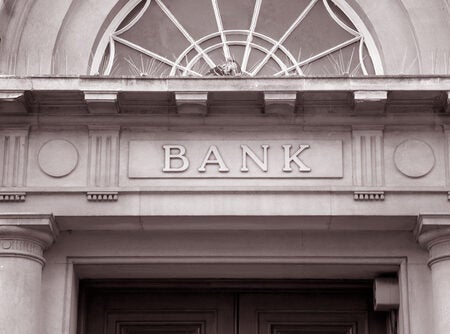
Millions of Americans were affected by Hurricane Sandy in various ways and in many cases, it could take days, weeks, or even months to realize the full extent of the damage. As such, many banks are now changing their policies for victims of the devastating storm.
Several of the nation’s largest financial institutions announced various protections for those living in areas hit by Hurricane Sandy, both preemptively and after the fact, according to a report from TIME. These were mainly designed to help those who might have difficulties meeting their monthly obligations to deal with other problems before worrying about paying bills, which would likely come due just days after the storm hit, given that it came at the end of the month. In all, experts believed there were an expected 50 million people in the storm’s path prior to making landfall.
Specific protections being extended
Chase said that it would preemptively waive all late fees for customers in eight of the affected states, the report said. That includes charges that would normally be applied to customers’ accounts, such as for credit cards and loans, including mortgages, home equity lending, and both auto and student financing. Further, it will also waive account overdraft and insufficient funds fees that might be applied to debit transactions. Finally, New York City residents who used out-of-network ATMs to withdraw money ahead of the storm will likewise not be charged a fee for doing so.
Meanwhile, Citibank said that it will waive fees for affected consumers only if they contact the bank itself, the report said. Similarly, Bank of America and Capital One said that they would waive fees on a case-by-case basis, and not apply a blanket policy to all customers in affected states.
Wells Fargo also announced that it would waive late payment fees on credit cards, consumer loans, some financing for small businesses including home equity, as well as auto and student financing. Further, out-of-network ATM fees will be waived for customers in Maryland, Virginia, Washington, D.C., Delaware, Pennsylvania, New York, New Jersey and Connecticut. It will also give mortgage customers in those states options related to more flexible payments, as well as guidance on how to claim losses on their property insurance.
Many of the nation’s biggest banks made similar concessions last year when Hurricane Irene wreaked havoc on the east coast, the report said. Wells Fargo and Chase, for instance, said they would temporarily waive certain fees, and Chase did the same for credit cards and some loans. However, these announcements were made after the storm, not prior to it.
The effects these exemptions can have
Customers who find themselves unable to pay their bills on time as a result of Hurricane Sandy will of course still owe money on whatever obligations they may have outstanding, but the allowances banks grant them can be helpful. For instance, being able to avoid late fees will obviously help them to save money, but perhaps more important will be whether the banks choose to report their debts as being delinquent.
Late payments can be extremely damaging to a borrower’s credit rating because that factor alone makes up 35 percent of a borrower’s overall score. For this reason, it’s important for those affected by Hurricane Sandy who believe they will not be able to pay their bills on time to contact their bank as soon as possible and see what options may exist for being considered current on their payments even when they cannot be.
Of course, there are other pitfalls for victims to worry about as well, such as putting some of the more necessary purchases they face in the wake of the hurricane on their credit cards, which can in turn lead to more debt that they may not be able to handle all at once. This will not only increase financial concerns, but also those related to their credit rating, as it will likely boost their credit utilization, which makes up another 30 percent of their overall credit score.
Because of these two concerns, the effects of Hurricane Sandy could dog its victims for months or even years down the road if they’re not careful in how they deal with their finances going forward.
Fortunately, consumers can also order a copy of their credit reports, which may help them to better understand their situations. It may also help them to identify any potentially unfair markings that may negatively impact their credit scores. Working with a credit repair service may also help to correct such issues and put finances back to where they deserve to be.






